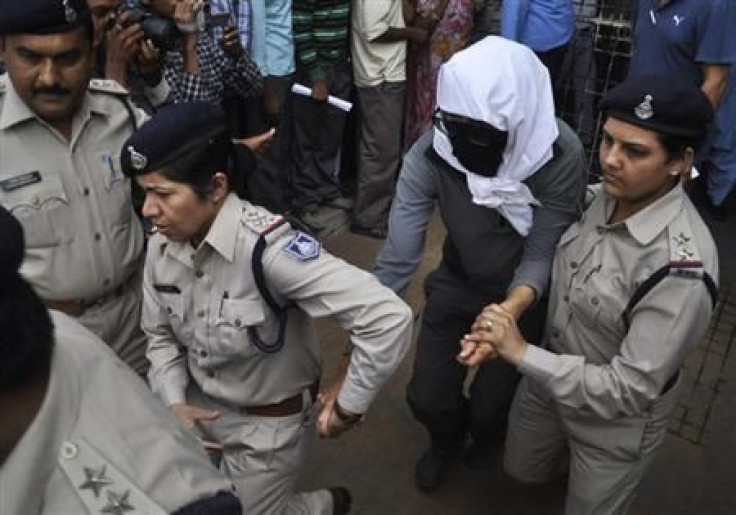Gang-Rape Of Tourist In India Triggers More Hostility And Derision From Chinese Netizens Towards Southern Neighbor

Last week's high-profile gang-rape of a Swiss tourist in India (only a few months after the fatal gang-rape of an Indian medical student in New Delhi sparked waves of protests) has elicited a furious response from Internet-users in India’s giant neighbor and rival, China.
The latest incident – in which a Swiss woman on a cycling holiday with her husband was robbed and sexually assaulted in the central Indian state of Madhya Pradesh – seems to have triggered a wave of insulting attacks not only on Indian morality, but on the state of its civilization as well.
On the QQ.com website of China, as collected by ChinaSmack.com, reaction to the latest Indian gang-rape elicited some of the following comments:
“India is a garbage country… Committing rape when they have nothing else to do… Engaging in an arms race with China.”
“They [the Swiss tourists] clearly knew India is a stupid c_nt of a country yet insisted on going there.”
“India, a so-called ancient country, so embarrassing. The legal system in that country is nothing more than a f_rt!”
“Simply animals! A country heading to its demise is just like this, where gang rapes are reported one after another.”
On the NetEase.com website, the following gems were unearthed:
“Are there no more women in India?”
“How on earth did India become this horny?”
“India! Another mother_cking place!”
In previous years, Chinese netizens have scorned India’s vast poverty, and unfavorably compared India’s progress to China’s own.
Comments from Tiexue website regarding photographs of homelessness and destitution outside Delhi included:
“India’s officials admit that half of its population still doesn’t have toilets and urinate and defecate outdoors, and this kind of country just spent [$1.1 billion] buying fighter [planes].”
“Nauseating and disgusting India!”
“Look at the lives of these people and they still try to compete with China, it’s simply a waste of resources to build up the military.”
“The more people there are, the poorer they are. The poorer they are, the more they have children. Chinese people should all thank the government’s family planning policies.”
A blog on the Sina.com website recently included unflattering photos of poverty, pollution in and around the Ganges River that were taken by someone calling himself "Happy Zhangjiang."
According to the South China Morning Post, the blog also included pictures of lepers, wild animals roaming city streets and dirty open-air toilets. The blog attracted more than 37,000 comments in less than a week.
“India is the dirtiest country I have been to, some say worse than both Pakistan and Bangladesh. It was beyond the scope of my imagination,” the travel blogger wrote.
But some Chinese commenters defended India and criticized the photographer -- in some cases, accusing him of fraud.
“China likes to subjectively judge other country's conditions, but does not realize its own are the most pathetic. This is just way too sad,” one user commented.
Another suggested the photos were a hoax, and might have been taken decades ago.
Another user declared: “First of all, the [blog] is a patchwork of plagiarism. Secondly, a large number of the photos are disrespectful to the dead and not suitable for public viewing. … India has many beautiful places and a fantastic culture.”
Nonetheless, China seems to hold a generally dim attitude toward India and Indians.
A Pew Research poll from 2012 indicated that only 23 percent of Chinese have a favorable attitude towards India, while 62 percent have a negative view.
“There is further evidence that Sino-Indian relations have cooled in recent years -- increasingly, the Chinese public is wary of India’s economic growth,” Pew said.
“Currently, only 44 percent of Chinese say that their southern neighbor’s expanding economy is positive for China, down from six-in-ten in 2010. Meanwhile, those saying India’s growing economy is a bad thing has almost doubled over the same period.”
© Copyright IBTimes 2024. All rights reserved.











